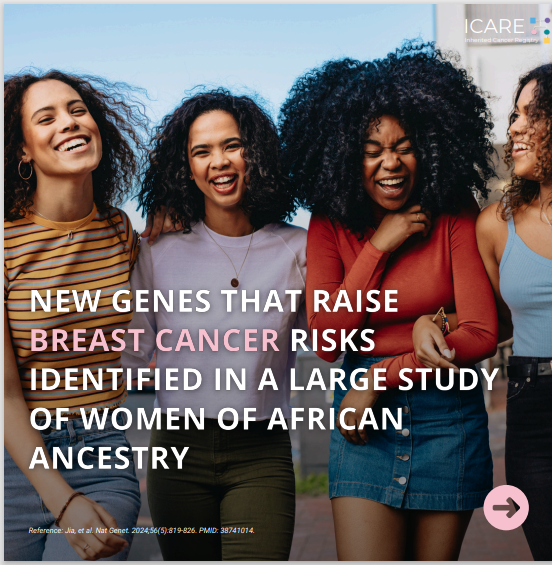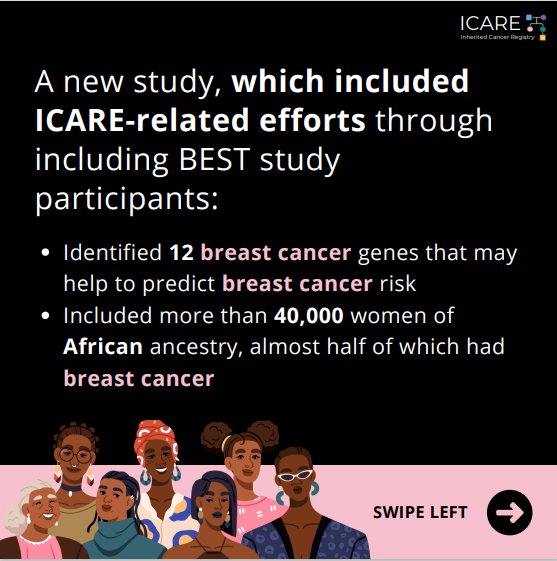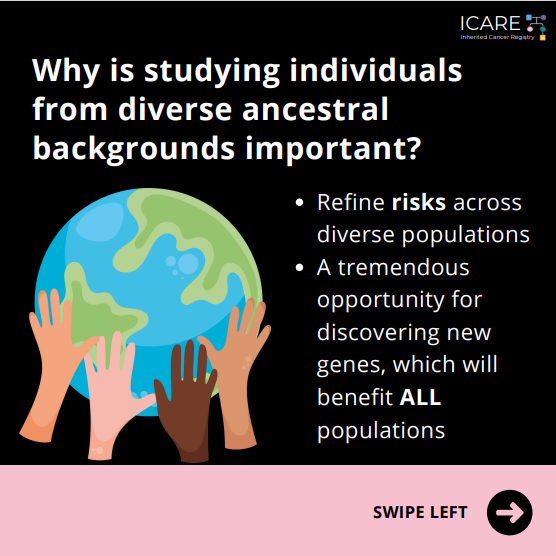



A new study, which included ICARE-related efforts through including BEST study participants:
▪️ Identified 12 breast cancer genes that may help to predict breast cancer risk
▪️ Included more than 40,000 women of African ancestry, almost half of which had breast cancer
Why is studying individuals from diverse ancestral backgrounds important?
▪️ Refine risks across diverse populations
▪️ A tremendous opportunity for discovering new genes, which will benefit ALL populations
Learn more at: https://www.nature.com/articles/s41588-024-01736-4
Reference: Jia, et al. Nat Genet. 2024;56(5):819-826. PMID: 38741014.
